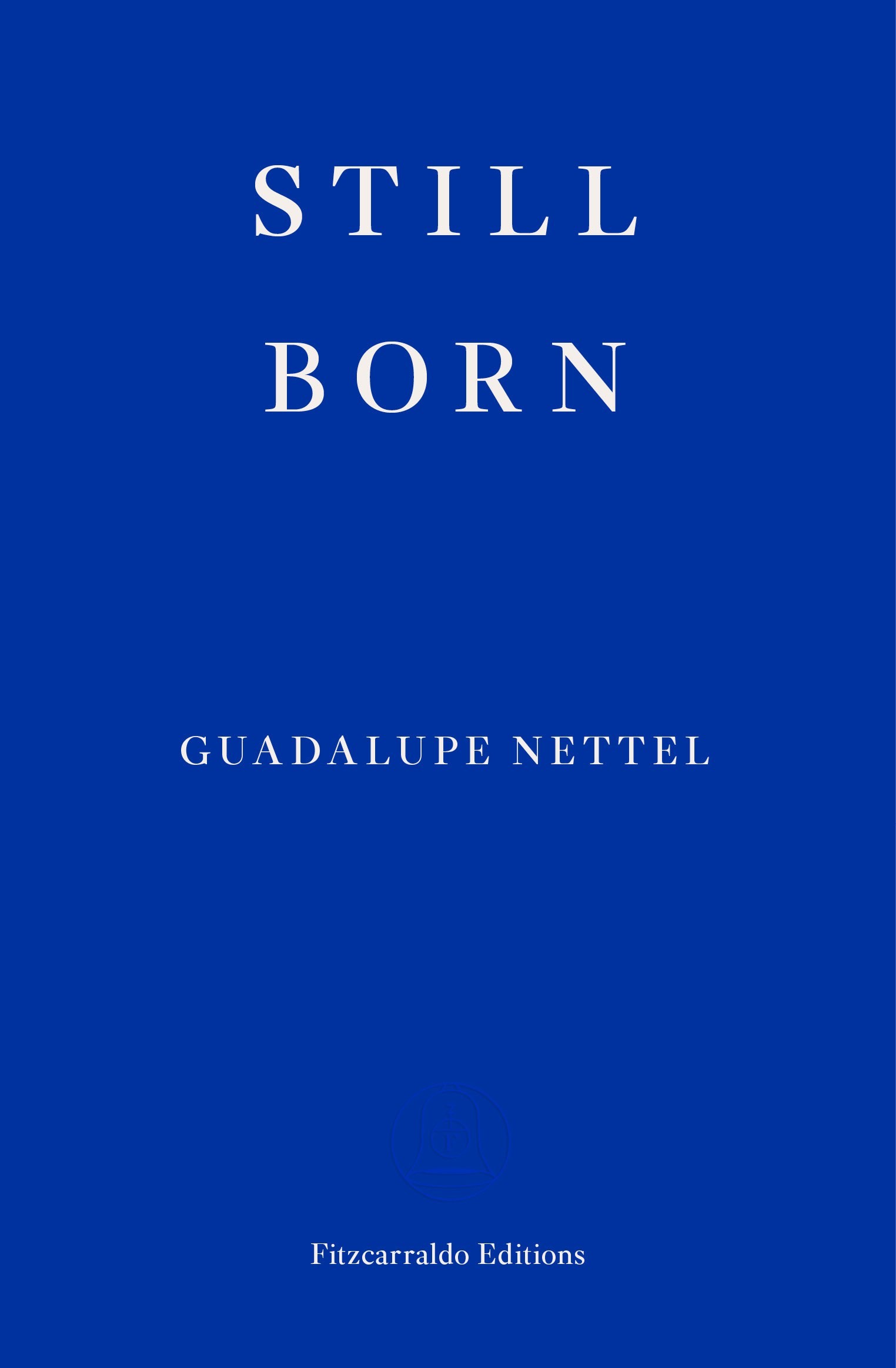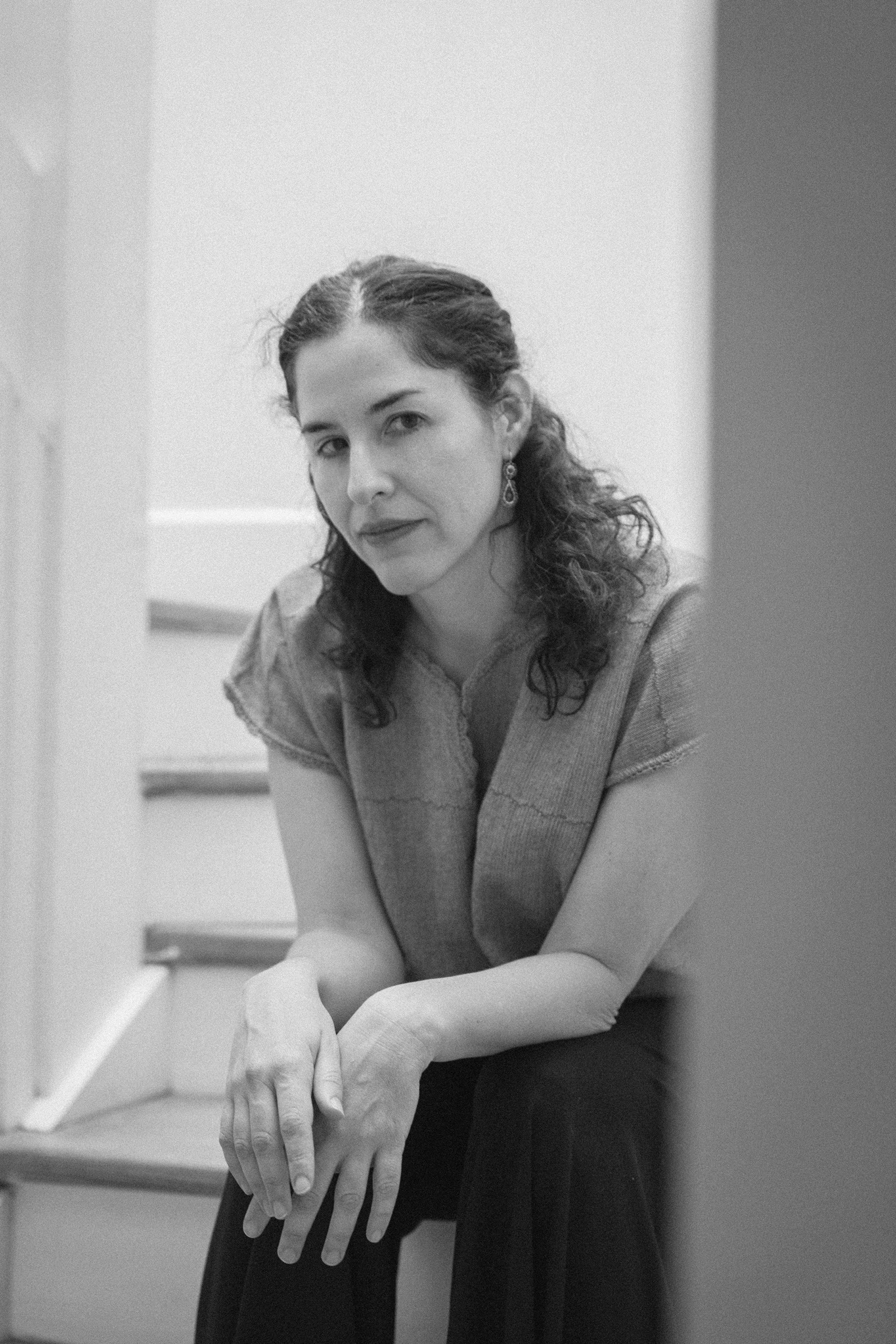“It is not the place of literature to provide answers,” Guadalupe Nettel tells me, “but to ask the right questions and to invite readers to reflect.” Her new novel Still Born certainly leaves much to ruminate on. At a time when the question of choice surrounding motherhood feels more pertinent than ever, Nettel’s book presents a deeply ambivalent and complex study of whether or not to have children. Set in Mexico City, where gender-based violence and femicide have reached epidemic proportions, the story is backdropped by feminist anger, collective action and rumbles of change.
Still Born traces the lives of Laura and Alina, best friends with a shared aversion to “the human shackles” of motherhood. In their mid-30s, however, things change. When Laura undergoes sterilisation as “a genuine innoculation against societal pressure”, Alina finds herself intensely drawn to motherhood. When she finally falls pregnant, medical complications arise, and with them, emotional and ethical quandaries of the most devastating kind. Meanwhile, a pair of pigeons build a nest on Laura’s balcony, and she strikes up an unlikely friendship with Nicolás – the son of a single mother who has moved in next door. From here, stories of choice and what it is that makes a mother unfurl.
Still Born is a sharp, clever and cutting depiction of the world in which we live and the expectations and conditions that women labour beneath. It presents the many ways in which we mother and are mothered, and proclaims none as being the only or right way. Ahead of her UK book tour, AnOther spoke with Nettel about her new novel, the necessity of choice, and why female emancipation is hindered by the patriarchal construct of motherhood.
Rosie Flanagan: To me, Still Born is a deeply feminist book, one that affirms female choice and challenges patriarchal ideas of motherhood and maternal instinct. Was this your intention?
Guadalupe Nettel: In the beginning, my intention was to write the story of my friend and her daughter that I’ve found incredibly inspiring – both terrible and beautiful at the same time. I wanted to understand thoroughly what she went through, to recreate her experience, feelings and insights.
I decided to tell it from the friend’s point of view, because I wanted friendship to be at the centre of this novel: friendship as a bond that supports and saves us in the worst circumstances. Friendship is the main way I know to experience empathy. The reflection on women’s condition that is present in the book came in a very natural and organic way. I think that, more than an intellectual conclusion or a moral duty, feminism comes from empathy. When we see the pain, the injustice, the violence that women constantly suffer, an urge to stop it awakes in us, and that is when we become feminists.
RF: Were you trying to break the stereotypical view of motherhood by presenting it as biological and non-biological, individual and collective?
GN: Laura uses the expression “human shackles” because – at least in the way it is practised today in western societies – motherhood limits, binds and sometimes even mutilates women’s lives and freedom. All the burden, responsibility and moral weight falls on their shoulders, while men can just disappear or show up from time to time without any social consequences. I think that the solution resides in collectivity. For centuries humans raised children this way. Families were far more extended than they are now, so women weren’t so alone.
There was always another woman – friend, sister, mother, aunt – to look after the child in case the mother fell ill, had to work, or lacked the psychological conditions. Some women adore children’s company but don’t want to give birth, and collective raising allows them to participate in motherhood without having to be biological mothers. I am not inventing anything new. It is just a coming back to a practice and common sense that we lost at some point, but this time I suggest we make sure that men participate as well!

RF: So much that feminists have fought for historically is at risk, most notably our bodily autonomy and our reproductive rights. Was Still Born written in response to the current climate?
GN: Well, at that time I certainly didn’t know what was going to happen in the US in 2022. I couldn’t imagine how fragile the preservation of rights we have already achieved is. But I had in mind many other forms of violence: psychological, physical, political, economic; obvious and subtle, that women suffer every day.
I’m sure that many women, all over the world – but especially in the United States – are realising how important the fights of the feminists who came before them were and still are. When I was very young and I first heard about feminism, I didn’t identify immediately with them – the “angry” feminists – but I do now, because I know exactly where this anger comes from. Seeing what is happening in Mexico, or in countries like Iran, reading what is at stake in the US, I realise how difficult the journey was to get to where we are, and how easily the rights that we have achieved can be stolen from us. Anger is not always a beautiful thing, but sometimes it’s useful and necessary. Sometimes it is the strength that makes you stand for your rights, for your friends’ security, and even for your own life.
RF: The UN says that Latin America is the most lethal place for women outside of conflict zones, with femicide and violence against women reaching epidemic proportions in Mexico. Could you explain how this influenced the shape of this book?
GN: In Mexico, 11 girls and women are murdered every day, many out of hatred. This is not just something that we just read about in newspapers, very often it’s a friend’s friend or sibling that has been murdered by her partner and many times these guys are not imprisoned or even put on trial. This impunity gives rise to more crimes and even to a normalisation of it.
When I wrote this novel, thousands of women were on the streets throughout the country protesting against gender violence. The protests were massive. Women were committed to waking Mexican society up, to opening people’s eyes to the ignominy that is taking place here. This movement echoed across many other Latin American countries, where women were fighting for reproductive rights. The climate was effervescent, full of creativity, reflection, questioning and a sense of sorority that I’ve never experienced before. All of this impregnated the writing of the book.
“When we see the pain, the injustice, the violence that women constantly suffer, an urge to stop it awakes in us, and that is when we become feminists” – Guadalupe Nettel
RF: Did your experience of motherhood or mothering inform Still Born?
GN: I think it’s impossible for your biography not to permeate your fiction. I chose Laura as the narrator because I didn’t want to speak about myself in the book. Laura is different from me in many aspects: she’s more extreme, more radical and she has decided not to have children. But I also share some things with her: she’s a scholar, which, in a way, is similar to being a writer, she has a complicated relationship with her own mother and she is interested in Buddhism … Part of my story also permeates the story of Doris and Nicolás. I’m not a widow, I’m more like a divorced woman who restarted her life, but I know what it is like to live in a violent relationship with someone with whom you have children. I know the terror in which a woman like that can live, and how long it takes to heal after.
RF: On Laura’s balcony, an egg in the pigeon’s nest hatches to reveal a cuckoo. This birth seems to pose a question: what makes a mother, what makes a family? If you don’t mind, I’d like to pose those questions to you.
GN: I think it is not the place of literature to provide answers but to ask the right questions and to invite readers to reflect. “What makes you a son? What makes you a mother?” are two key questions in the book that arise in different moments of the story. Other, more complex questions are posed too: are we mothers when the baby we carry inside is condemned to die before it is born? Is that baby our child and will it be our child forever? Are we mothers if we help another woman to take care of her offspring? Are we mothers if we abandon our children temporarily or permanently? I personally think that motherhood can take on many forms.
“Anger is not always a beautiful thing, but sometimes it’s useful and necessary” – Guadalupe Nettel
RF: Still Born raises many questions, particularly around the lack of representation of voluntary childlessness in literature: why aren’t these stories told? What might these stories do? In light of these questions, is there anything that you hope this novel might achieve?
GN: I believe that for years no one talked about this because people knew that if we had this debate, if the moral and social dimensions of maternity were questioned and arguments against maternity were heeded to as well as the unfair ways in which nurturing can unfold, many women would have chosen not to reproduce, as is the case in many countries nowadays. It is far more difficult to control a childless woman.
In Mexico, we have the brutal saying: “A tu mujer, como a tu escopeta, mantenla cargada y detrás de la puerta” which translates to: “Keep your women the way you keep your shotguns: loaded and behind the door.” I like to think that reading this book will make readers – whether male or female – question some of the practices we now take for granted as natural and unalterable, that women might broaden their perspectives on motherhood and be able to decide better what to do with their lives.
RF: Is there a lineage of novels that you feel Still Born is a part of?
GN: During the writing process, I was having an intense conversation in my mind with many female authors who wrote about motherhood before me: Simone de Beauvoir, Annie Ernaux, Vivian Gornick, Margaret Atwood, Sophie Lewis, Rivka Galchen, Leila Slimani, Lina Meruane, Rosario Castellanos, Sheila Heti and many others. Feminists lit the fire in the 1960s, raising this topic when no one wanted to hear [about it]. This fire is now reaching a significant height. I see this book as one more flame in that collective fire.
Still Born by Guadalupe Nettel is published by Fitzcarraldo Editions and is available now. You can see Guadalupe Nettel in conversation with Megan Nolan at Foyles Charing Cross Road in London on August 31.
